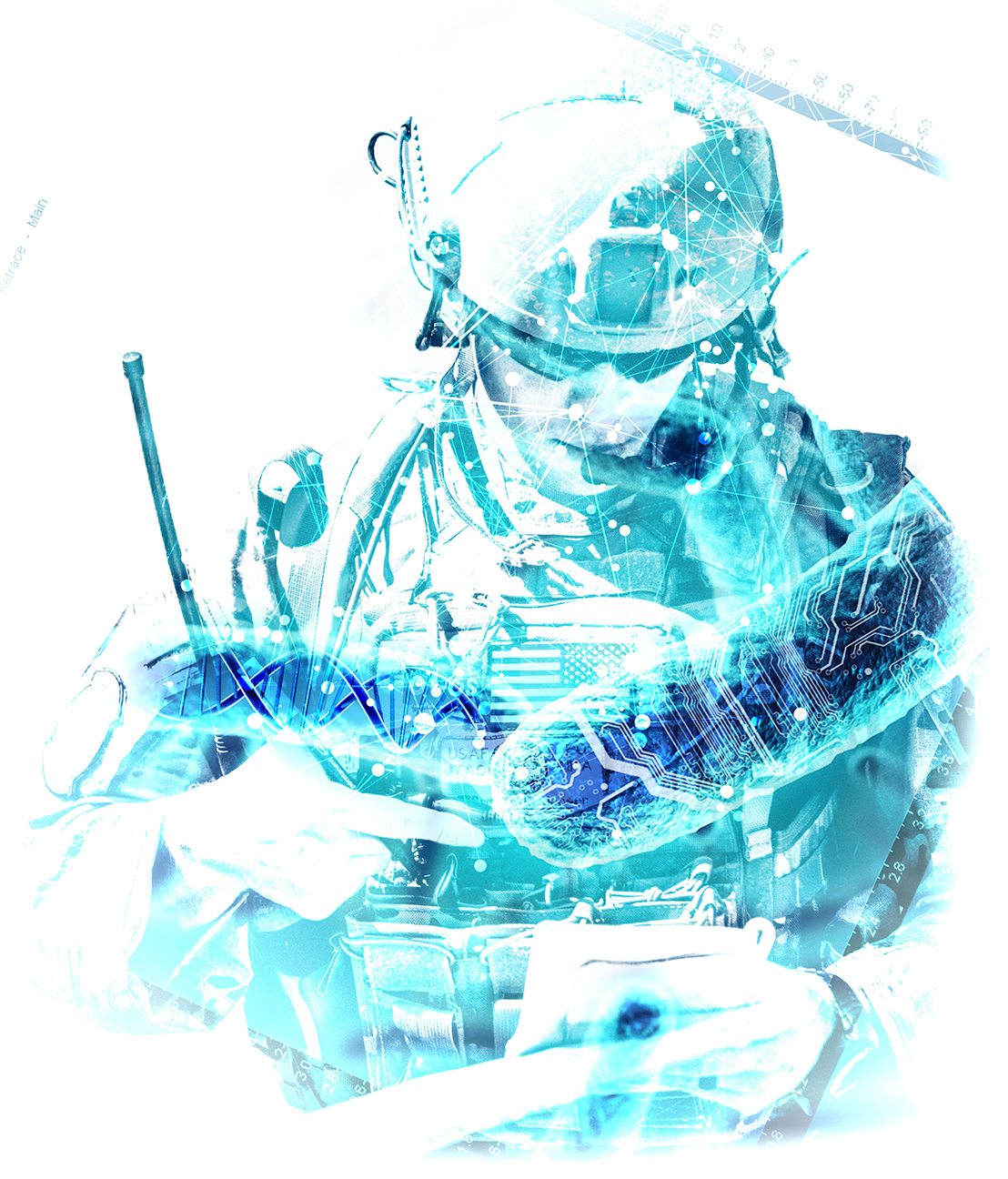WRIGHT-PATTERSON AIR FORCE BASE, Ohio (AFRL) – The Air Force Research Laboratory’s Biotechnology Grand Challenges have been awarded to four teams in effort to spearhead innovation among small businesses in the field of biotechnology for the Department of Defense.
The challenges, each of which comes with $1 million, have been awarded to Debut Biotechnology, Inc. for biosynthesis of monomers for aerospace thermosets, Amyris for biosynthesis of high-density endothermic fuels, and MIT-Tufts-Synlogic for human performance-enhancing probiotics. An additional award of $500 thousand was awarded to Tech Holding, LLC in the area of biosynthesis of high-density endothermic fuels. The review team for each topic consisted of experts from across the Department of Defense.
“Through collaborations with industrial and academic partners, these grand challenges allow AFRL to mature promising solutions using biotechnology to deliver products to our warfighters to ultimately both enable and enhance their performance and their lives,” explained Dr. Rajesh Naik, AFRL’s biotechnology portfolio lead and chief scientist of the laboratory’s 711th Human Performance Wing. “Internally, we have demonstrated the technological feasibility of these challenges, and by partnering with these selected teams, we seek to mature the solutions for advanced technology demonstrations.”
AFRL’s team of experts chose these three specific challenges in order to look for ways to quickly make big strides in the area of biotechnology, which is not only an AFRL Big Bet, but also one of 12 Office of the Secretary of Defense’s modernization priority areas, explained Dr. Jill McQuade, AFRL’s biotechnology co-program manager.
The challenge coordination team also included Dr. Claretta Sullivan, AFRL’s biotechnology co-program manager; Bob Lee, WBI’s project manager; and Sean Mahoney, AFRL’s chief intrapreneur representing AFRL’s Small Business Office. All challenges were run through the National Security Innovation Network website.
The final selection for each team was approved by the AFRL Biotechnology Community of Practice leadership, and the monetary award came from the Small Business Office Innovation Pipeline funds, said McQuade.
Dr. Davide Simone, AFRL’s technology lead for biosynthesis of monomers for aerospace thermosets, stated that the proposal from Debut Biotechnology “provides a path to a scalable, bio- and metal free synthesis of key aerospace polymer precursors, eliminating the reliance on precious metal catalysts and corrosive reagents. Expected benefits for the Air Force include a significant savings in composite aerospace structural material costs and the elimination of oxidation promoting metal catalysts from structural components, extending service lifetimes.”
Dr. Michael Goodson, AFRL’s technical lead for the human performance-enhancing probiotic team stated that the selection committee was presented with many innovative solutions to the probiotic challenge, and the decision came down to fine margins. “We are confident that the winning team from MIT-Tufts-Synlogic has the expertise and experience to develop and deliver an engineered probiotic ready for human trials in a year’s time,” he said.
Dr. Oscar Ruiz, AFRL’s technical lead for biosynthesis of high-density endothermic fuels, said that Amyris presented a “compelling research and development approach that balanced the need for new fuel biomolecules with the scale-up knowhow to deliver the required quantity of advanced biofuel for testing at AFRL.”
An additional award was presented to Technology Holding, LLC, explained Ruiz, who provided “an innovative biosynthetic approach to generate several unique biomolecules with the potential to further enhance the characteristics of advanced fuel formulations.”
AFRL announced its three Biotechnology Grand Challenges in 2020 in efforts to spearhead innovation among small businesses for the specific needs of the Department of Defense.
In the first phase of competition, small business participants submitted white papers with their concepts. During the second phase, a panel of experts selected which white papers would move forward in the competition. Then, those selected to continue in the competition were given two weeks to enter into an agreement with a company of their choice that could scale up production and manufacturing. Finally, the teams participated in a Pitch Day, and presented a one-hour pitch of their concept and scale-up strategy with their manufacturing partner to the AFRL team.
“The purpose of these challenges is to show the broader science and technology community as well as the research and development community how biotechnology can successfully be used as a tool to develop innovative solutions to current hard problems,” said McQuade.
“We are excited by the promise of these technologies, and that they will provide game changing capabilities for the Air Force and DoD. By awarding these grand challenges and partnering with these teams, we are a step closer to making that happen,” said Naik.

The Air Force Research Laboratory’s Biotechnology Grand Challenges have been awarded to four teams in effort to spearhead innovation among small businesses in the field of biotechnology for the Department of Defense. (U.S. Air Force graphic/Richard Eldridge)
